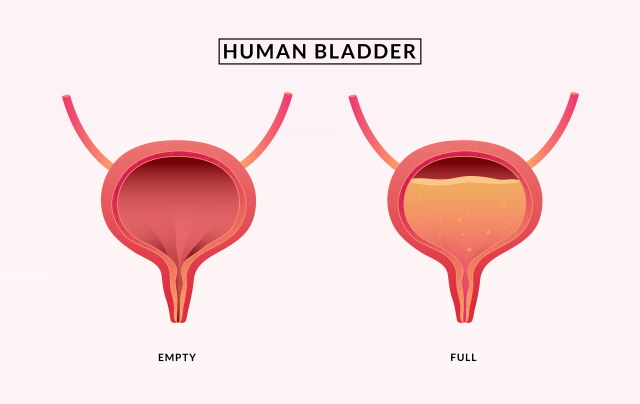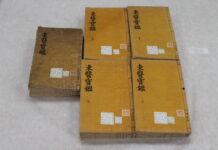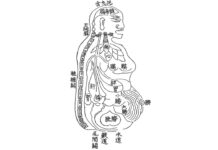Written By Jun Heo(許浚, 1539~1615), Translated by Namil Kim, Wung Seok Cha et al., Published by Ministry of Health & Welfare (Korea)Buy vitamins and supplements.
01 The Process of Urine Formation 小便原委 소변이 만들어지는 과정
① Divine Pivot (靈樞) says, “Water and food stay in the stomach, turn into feces, descend to the large intestine, and permeate to the lower energizer. After being filtered and separated into the clear and turbid, it passes through the lower energizer and permeates into the bladder.”
② Inner Classic (內經) says, “Water is separated at the large intestine and permeates the bladder, which in turn makes urine out of it by qi transformation.”
③ Classic of Difficult Issues (難經) says “Water and food are received by the small intestine and separated by the ileocecal conjunction. Water permeates the upper entrance of bladder and then becomes urine.” Considering the three theories above, filtered, and separated water permeates the bladder and then comes out to become urine. The Inner Classic says, “Water enters into the stomach. As essential qi overflows, it ascends to the spleen. When spleen qi scatters essence and sends it up to the lungs, the lungs control waterways and drop it to the bladder.” Therefore, urine is made after the spleen and the lungs distribute the ascended essence qi of water from stomach. Urine belongs to Water, and it’s the nature of Water to flow down. When what has been drunken goes into the stomach, the essential qi can ascend but the substance cannot. In that manner of thinking, how can we be assured that urine is only made by qi transformation? Inner Classic (內經) says, “The bladder stores fluid and humor which is excreted as the qi transformation is done.” In addition, Water is the son of qi, and qi is the parent of Water. Therefore, when qi is blocked, so is Water. Someone may say urine is made not by transportation and transformation but by separation. That’s because the person does not understand the logic.
02 The Urinary Bladder Is a Urinal Tub 脬爲尿器 포는 오줌통이다
The bladder is called a house of fluid and humor, but it may take and contain fluid and humor because of the urinary bladder situated inside it. Therefore, the Inner Classic (內經) says, “Heat is transferred from the urinary bladder to the bladder.” Divine Pivot (靈樞) says, “The urinary bladder inside the bladder is thin and soft,” and the Classified Compilation on Nurturing Life (類纂) says, “The bladder is a house of the urinary bladder.” The uterus is situated at the bladder. Because it only has the lower exit and no upper entrance, it does not have any way to send fluid and humor out when the urinary bladder is filled up. After qi transformation is done, it wets the outer part of the urinary bladder step by step, and finally becomes urine to come out through the anterior yin. If not for the vacant place below the urinary bladder, how can urine come out as soon as one really needs to urinate? One can urinate in a hurry because the empty space under the bladder gets filled up to the brim and the person cannot hold it any more.
03 Colors of Urine 辨尿色 소변의 색
- All turbid urine belongs to heat.
- Yellow urine means heat in the lower abdomen.
- If one suffers from the liver heat, urine turns yellow first.
- In the case of qi excess by the leg yang brightness syndrome, it turns yellow.
- Urine in jaundice has the same color as Phellodendri Cortex (黃柏) juice.
- Urine has five colors and the red and the white account for the most common. Red color is mostly due to alcohol, while the white one is due to the deficient and cold lower sources.
- If there is no blood in the lower energizer, one would have difficult, frequent, and yellow urination.
- When one cannot hold urinating, red urine means heat, and the white one means a qi deficiency.
04 Diagnosis by Pulse Taking 脈法 맥법
① If lesser yin pulse is rapid, a woman may have some sores on the external genitals and a man may have qi strangury.
② If the kidney pulse is slippery and replete, one may have difficulties in urination or have a swollen scrotum.
③ Turbid urine as a result of leaking essence can appear on the chi (尺) pulse; if the pulse is bound, hollow, stirred, and tight, there must be cream-colored urine caused by leaking essence.
④ In the case of hematuria, the pulse may be hollow. When a pulse is fast, the urine may be red-yellow. The replete pulse means difficulties in urination and anuria which indicates heat inside the bladder.
⑤ If both chi (尺) pulses are large and fast, there must be cream-colored urine and seminal emission.
⑥ In the case of a strangury disease, one with a prosperous, large, and replete pulse may survive, while one with a vacuous, fine, and rough pulse may die.
⑦ If the pulse is fine, the difficulty in urination cannot be cured.
⑧ What might be harmful if the pulse on strangury disease is narrow and fast? The reason why the lesser yin pulse is faint is because qi is blocked in the bladder. If this pulse appears to a woman, it means the existence of a sore in the pubic area. A large and full pulse indicates easy recovery while an empty and rough one means death.
05 External Signs Accompanied by Difficulty in Urination 小便難外候 소변을 누기 어려울 때의 외후
① When the tip of the nose is golden-yellow, one must have difficulty in urination.
② One whose nose has a golden-yellow tip may have difficulty in urination.
06 Having Difficulty in Urination 小便不利 소변이 잘 나오지 않는 것
① In the case of a yin deficiency, the person has difficulty in urination.
② Difficulty in urination is caused when Fire boils the lower energizer so it does not have enough blood and qi cannot descend; this will obstruct permeating. As yin must be tonified and Fire must descend, add Anemarrhenae Rhizoma (知母) and Phellodendri Cortex (黃柏) to a Four Substances Decoction (四物湯) [The prescription is mentioned in the chapter on Blood]
③ In the case of easy, frequent and golden-yellow urination due to the lack of blood in the lower energizer, add Anemarrhenae Rhizoma (知母), Phellodendri Cortex (黃柏), Achyranthis Radix (牛膝), and Glycyrrhizae Radix (甘草) (small roots) to Four Substances Decoction (四物湯).
④ Difficulty in urination means unpleasant urination. The Classic says that “As yang enters yin’s place, one may have difficulty in urinating because of heat inside the bladder.” As yin’s place is deficient, yang heat is vigorous. On yellow-red urination, use Perfect Akebia Powder (萬全木通散) for easy urination.
⑤ There are three reasons for frequent and difficult urination. First, is the lack of urine as a result of diarrhea. The treatment is to induce urination. The second reason is being unable to circulate fluid and humor because of heat rushing into the lower energizer. The treatment is to let it out by permeation. The third reason is obstructed spleen qi being unable to control waterways, and because of that, water cannot get down to the bladder and go through qi transformation. When qi is induced to better circulation which in turn induces better qi transformation, this leads the urine to be emitted normally. Poria and Amber Powder must be used.
⑥ In the case of reddish and difficult urination or strangury disease by upper excess and lower deficiency, use a Clear Heart Lotus Seed Drink [the prescription is mentioned in the chapter on Wasting-thirst] and Guide Out Red Formula. [The prescription is mentioned in the chapter on Five Viscera].
⑦ For frequent and dribbling urination caused by the kidney deficiency, use a Calming and Tonifying Formula for easy and pleasant urination.[B186] ⑧ Used for yellow and uneasy urination caused by heat in the bladder. Talcum (滑石) 2 don, Akebiae Caulis (木通), Poria Sclerotium Rubra (赤茯苓), Plantaginis Semen (車前子) (stir-baked), Dianthi Herba (瞿麥) 1 don each. Grind, steep these in water. Otherwise, mix 3 don of powder with water.
⑨ Used for difficult and frequent urination. Feces and urine must be segregated and let out. Alismatis Rhizoma (澤瀉) 1 nyang, Talcum (滑石) 7 don, Poria Sclerotium Rubra (赤茯苓), Atractylodis Rhizoma Alba (白朮), Succinum (琥珀) and Polyporus (豬苓) 5 don each, Cinnamomi Cortex (肉桂) Spissus, Glycyrrhizae Radix (甘草) (baked) 3 don each. Grind, mix each 3 don powder with 1 glass of Aqua Spumosavi (甘爛水) made by running water from a distant place (長流水), and take while eating healthy food.
⑩ Used for frequent and dribbling urination, enuresis, and incontinence of urine. Cuscutae Semen (免絲子) (processed with wine), Corni Fructus (山茱萸) (soaked in wine and stir-baked), Angelica Gigantis Radix (當歸), Alpiniae Oxyphyllae Fructus (益智仁) 5 don each, Meliae Fructus (川鍊肉), Achyranthis Radix (牛膝), Trigonellae Semen (胡蘆巴) (stir-baked), Eucommiae Cortex (杜冲) (soaked in juice of Zingiberis Rhizoma (生薑) and stir-baked), Morindae Radix (巴戟), Cistanchis Herba (肉蓗蓉) (soaked in wine) 3.5 don each, and Olibanum (乳香) 2 don. Grind, make into paste with waxy rice starch and make into pills as big as a seed of the royal foxglove tree. Take 50 pills with Jujube (大棗)-steeped water or boiled salted water.
⑪ Used for hematuria and difficult urination caused by heat accumulation in the heart meridian. Gardeniae Fructus (梔子仁), Rhei Radix et Rhizoma (大黃) (buried in a fire covered with ashes and baked), Forsythiae Fructus (連翹), and Glycyrrhizae Radix (甘草) all the same amount. Chop, steep each 5 don with water, and take it.









































